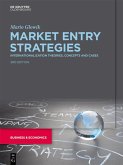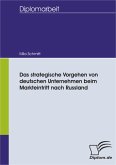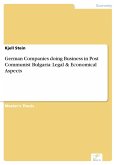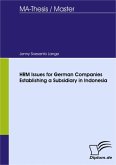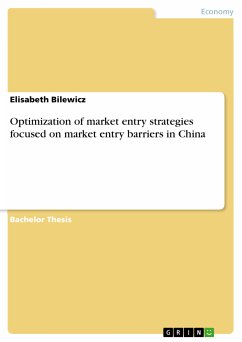Inhaltsangabe:Abstract: Germany is Russia¿s biggest trade partner. According to Russian official statistics, Russia imported 8.1% from and exported 13.4% to Germany in 2006. For Germany, Russia ranks eighth in overall trade volume, with exports about 23 Billion Euro and imports about 30 Billion Euro. Due to high prices for oil and gas, which amount for roughly 60% of Russian exports, the statistics indicates a negative trade balance for Germany since 2003. Germany is Russia¿s oldest trade partner, as well. No other West-European country has the same history of cultural, social and economical exchange with Russia as Germany does. The very term `German¿ in Russian language was century long the word for all `foreigners¿. Having left behind a century of forced antagonism, both countries are nowadays converging steadily. Today, the Russo-German trade relationships become more and more important for both countries. This paper focuses on the strategies German companies pursue on the Russian market. The fundamental question is empirical in nature: ¿What have German companies done in Russia?¿. The ultimate aim, however, is to gain empirical evidence for theoretical reasoning: ¿What should German companies do in Russia?¿. The paper consists of three parts. The first part gives a brief overview over Russo-German trade relations and Direct Foreign Investment. The Second part describes the legal, social and cultural environment in Russia and how German companies cope with it. The third part focuses on their strategy in response to their aims and to the environment. Inhaltsverzeichnis:Table of Contents: List of Tables7 Executive Summary8 1.INTRODUCTION8 2.METHODOLOGY9 3.TRADE RELATIONS AND INVESTMENT ENVIRONMENT11 3.1BILATERAL TRADE VOLUME11 3.2GERMAN DIRECT INVESTMENT IN RUSSIA13 3.3BUSINESS ENVIRONMENT16 4.LEGAL FRAMEWORK FOR INVESTMENT INTO RUSSIA17 4.1LEGAL FORMS OF INVESTMENT17 4.1.1THE REPRESENTATIVE OFFICE17 4.1.2THE BRANCH OFFICE19 4.1.3CORPORATE ENTERPRISES23 4.1.3.1The Limited Liability Company (OOO)26 4.1.3.2The Closed Joint Stock Company (SAO)27 4.1.3.3The Open Joint Stock Company (OAO)28 4.1.4OTHER FORMS OF COMMERCIAL ACTIVITY28 4.1.4.1Joint Partnership29 4.1.4.2Limited Partnership29 4.1.4.3Additional Liability Companies30 4.1.4.4The Production Cooperative30 4.2TAXATION31 5.SOCIAL ENVIRONMENT FOR MARKET ENTRY33 5.1HUMAN RESOURCES33 5.1.1Educational System33 5.1.2Labor Market35 5.1.2.1Current situation in [...]
Dieser Download kann aus rechtlichen Gründen nur mit Rechnungsadresse in A, B, BG, CY, CZ, D, DK, EW, E, FIN, F, GR, HR, H, IRL, I, LT, L, LR, M, NL, PL, P, R, S, SLO, SK ausgeliefert werden.



